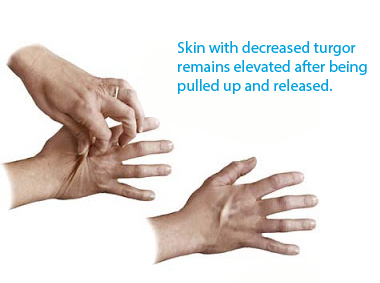Questions? : Call 1800 121 4415 (Monday to Saturday 10AM to 6PM)

Benefits of Proper Hydration - Hydrate for Health!
Proper Hydration Helps You Maintain Mental Clarity, Regulate Blood Sugar and Reduce Fatigue.
"About 75% of all Americans are probably dehydrated". Cornell Medical Center, Nutrition Information Center study.
Are you drinking enough H2O? Proper hydration is critical for you to enjoy good health. You cannot be healthy and fit, unless you stay properly hydrated - every day. We believe that proper hydration must take its place alongside nutrition and exercise as a foundational stone of holistic health and anti-aging medicine.
An often cited minimum, daily amount of water, to remain reasonable hydrated, is to drink half your body weight on ounces.
A suggested way to go for optimum hydration is to drink daily, one liter of water for every 30 pounds of body weight .


Explore the healthy hydration sections below. You’ll find them informative and fun. And, then drink up. Every time you drink a glass of great-tasting and healthy UltraWater you will be on the road to good health. Your body will thank you.
Are You Dehydrated?
What Does Dry Feel Like?
In addition to feeling thirsty, there are a number of symptoms associated with being mildly dehydrated and some serious ones associated with acute dehydration.
Mild symptoms include:
|
Acute symptoms include:
|

|
A Journal of Applied Physiology study1 found that dehydration by 2.5% to 5.0% of body mass strongly increased cortisol, epinephrine, and norepinephrine, the primary stress hormones. So dehydration is a cause of stress and stress often leads to dehydration. Are you feeling stressed out? The symptoms above are enough to cause stress in anyone. The best way to break this vicious cycle, avoid the symptoms above, and reap the benefits of hydration is to simply relax and drink up!
1) Judelson AD. et al. “Effect of hydration state on resistance exercise-induced endocrine markers of anabolism, catabolism, and metabolism.” Journal of Applied Physiology September 2008 vol. 105 no. 3 816-824.
The Dehydration Skin Test

The Dehydration Skin Test
Dehydration reduces skin elasticity. Hydration-aware health practitioners will often do this easy skin test—and so can you—to quickly check your hydration.
Pinch the skin on the back of your hand and pull it upwards until it is tight. Your skin should snap back rapidly within a second or so. If your skin maintains peaked and in its pinched shape for a few seconds and drops slowly, you are almost certainly dehydrated.

